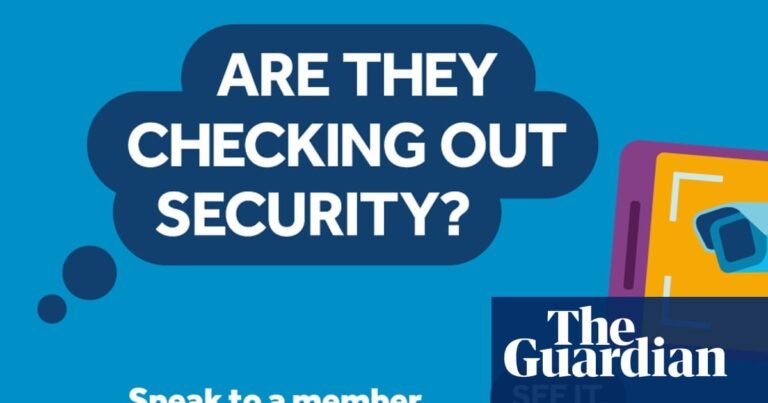It has been described as the most irritating slogan in the history of British transport, and now the infamous “See it. Say it. Sorted” security campaign is getting an overhaul a decade after being introduced.
However, to the chagrin of those hoping the frequent announcements across the UK rail network could be scrapped, the government has only undertaken a mild “refresh” of the slogan, which was launched under Theresa May’s government in 2016 to encourage passengers to report unusual items of activity.
The refresh extends to a “bold new design” to make the British Transport Police’s 61016 number “more prominent” as the slogan enters a “new era”.
“‘See it. Say it. Sorted’ has become part of the national consciousness,” said the security minister, Dan Jarvis. “Whether you’re commuting into work or waiting for a coffee at the station we’re all familiar with the message.”
While the campaign does its job – the number of reports has increased from an average of 30,000 a year before 2015 to more than 255,000 – the public has developed a love-hate relationship with the frequent public address announcements.
The slogan has become something of a cultural phenomenon entering everyday vocabulary and even a musical of the same name at this year’s Edinburgh fringe festival.
The See it. Say it. Sorted announcements are also a frequent feature of the tube as well as the country’s rail network. Photograph: Jeffrey Isaac Greenberg 5+/Alamy
In 2022, the then transport secretary, Grant Shapps, called for a “bonfire of banalities” to reduce the amount of public address system spam rail passengers were forced to endure.
The policy sparked widespread media coverage putting the spotlight on “See it. Say it. Sorted”, which the Times described as “the most irritating slogan in the history of British transport”.
While the Department for Transport (DfT) admitted that some Network Rail stations in London had been making the announcement at “twice the frequency required”, the slogan was saved because the campaign was considered to be “critical to enhance safety”.
The new designs for the posters make the British Transport Police’s 61016 number ‘more prominent’. Photograph: British Transport Police
Tony Miles of Modern Railways magazine told PA news agency: “The problem is, I think it’s become a bit wearisome on people and I don’t know whether they pay attention to it in the way they should.
“Is it said too often? Maybe reducing the frequency would be a thing to start with.”
skip past newsletter promotion
Sign up to Business Today
Get set for the working day – we’ll point you to all the business news and analysis you need every morning
Privacy Notice: Newsletters may contain information about charities, online ads, and content funded by outside parties. If you do not have an account, we will create a guest account for you on theguardian.com to send you this newsletter. You can complete full registration at any time. For more information about how we use your data see our Privacy Policy. We use Google reCaptcha to protect our website and the Google Privacy Policy and Terms of Service apply.
after newsletter promotion
However the DfT said the frequency of the announcements was being kept the same. The department has previously said passengers should not expect to hear messages on trains more than once every 30 minutes. And on longer journeys, with fewer stops, it is less often.
The DfT added that the refresh included a “makeover” of the posters to clearly display the 61016 number, while the train and station announcements have “had an upgrade to make their wording clearer”.
Some passengers are said to believe the ending of the slogan is an instruction to “sort it” rather than reassurance the issue will be “sorted”.
“This refreshed campaign will ultimately keep our railway running reliably by encouraging passengers to be our eyes and ears,” said Lucy McAuliffe, Network Rail’s route director for Sussex and crime lead for the southern region.
The DfT, which said the refreshed posters and announcements would “roll out gradually” across England, Scotland and Wales from Wednesday, did not reveal how much the “refresh” of the campaign cost.
